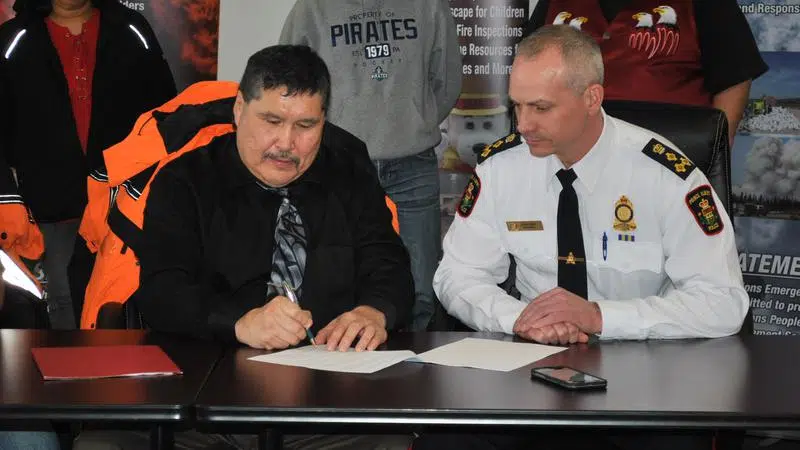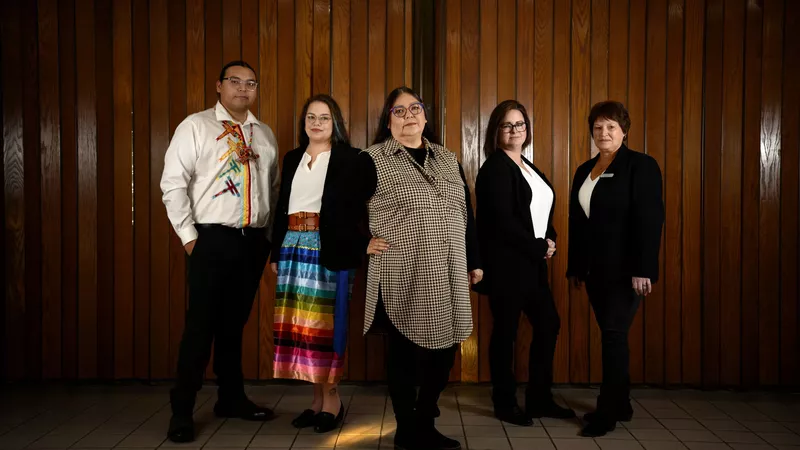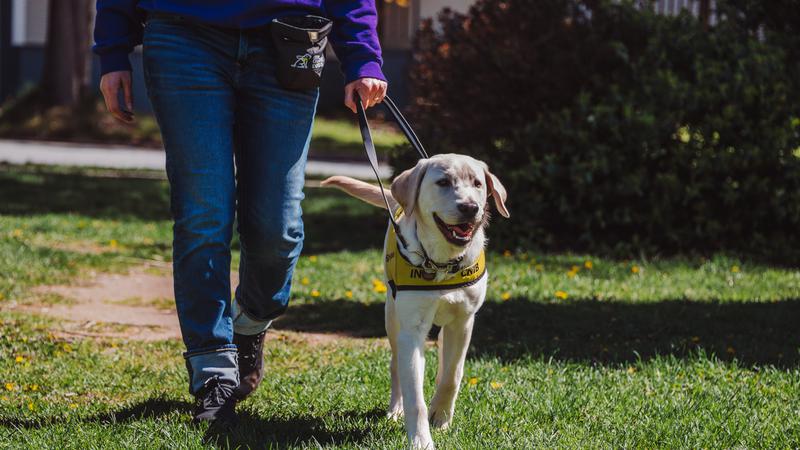
PAGC, police sign agreement on search and rescue operations
The Prince Albert Grand Council has signed a new agreement with local police and the RCMP to work together on search and rescue operations involving missing people.
PAGC Grand Chief Brian Hardlotte signed the memorandum of understanding Wednesday afternoon, along with Prince Albert Police Chief Jon Bergen and Assistant Commissioner Mark Fisher from the Saskatchewan RCMP. The agreement is the first of its kind in Saskatchewan and sets out formal roles and responsibilities when it comes to use of the PAGC’s search and rescue team.
The team officially became part of the Search and Rescue Saskatchewan Association of Volunteers in December. Hardlotte said the MOU is an important partnership that insures police will work with local First Nations’ leadership on missing persons files.


